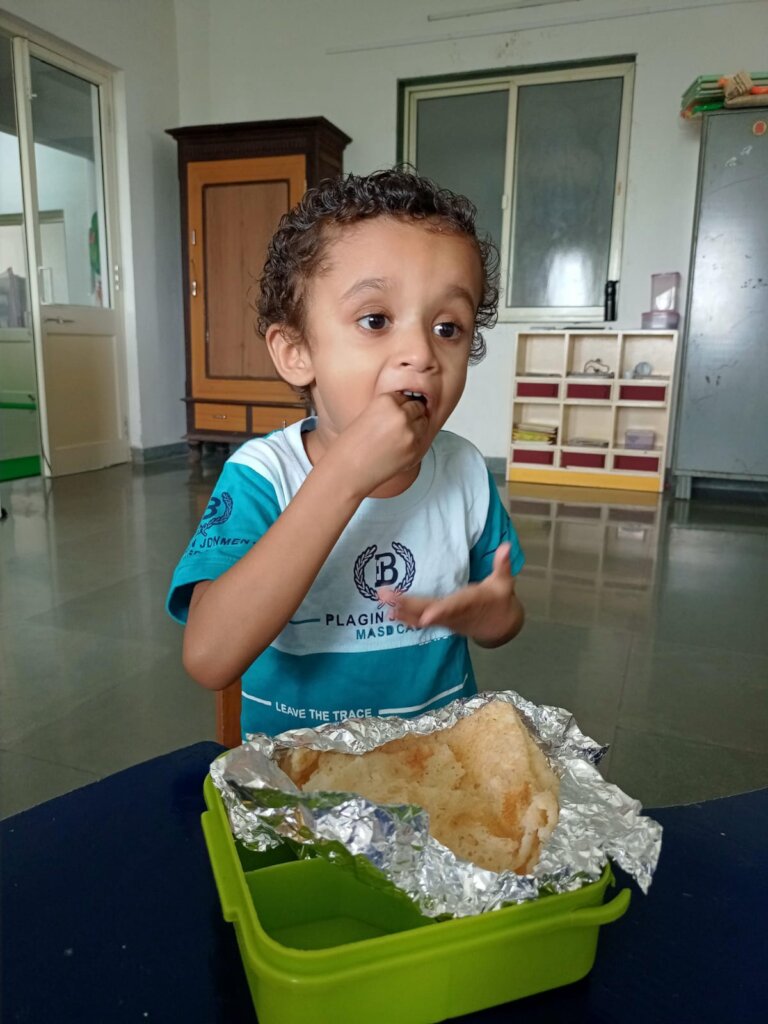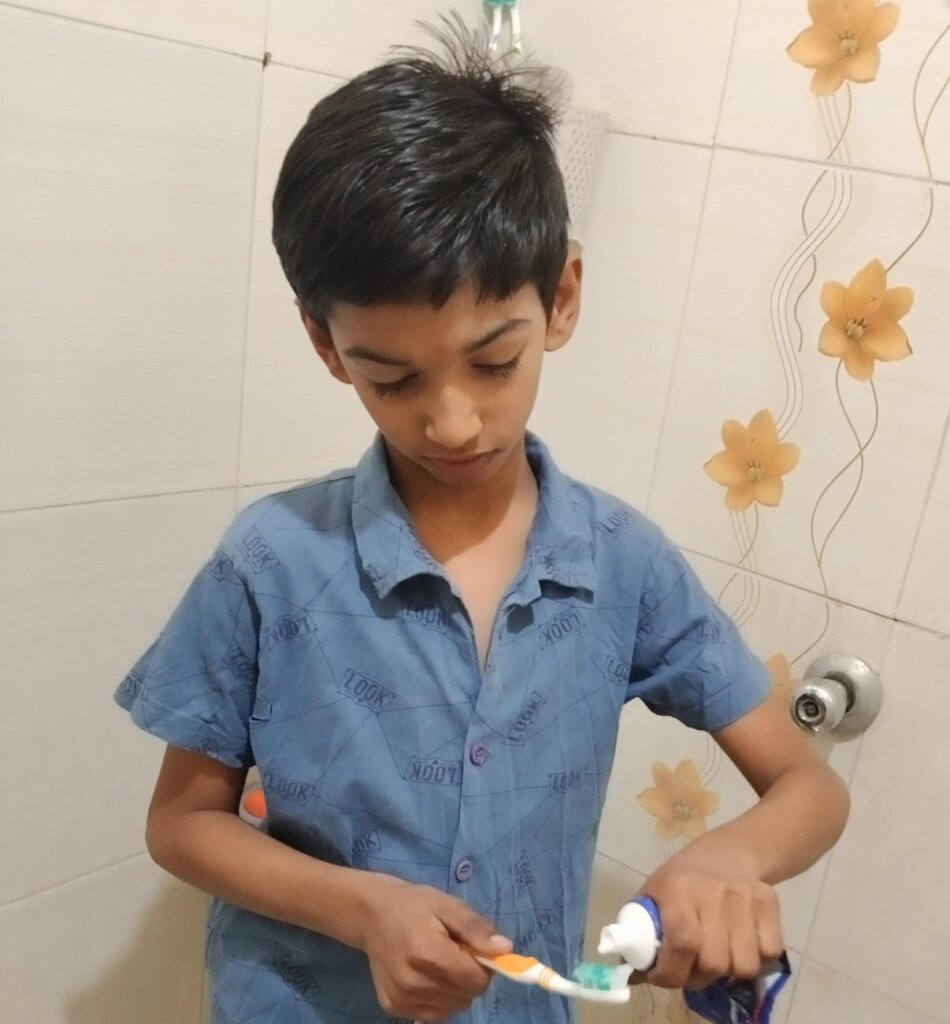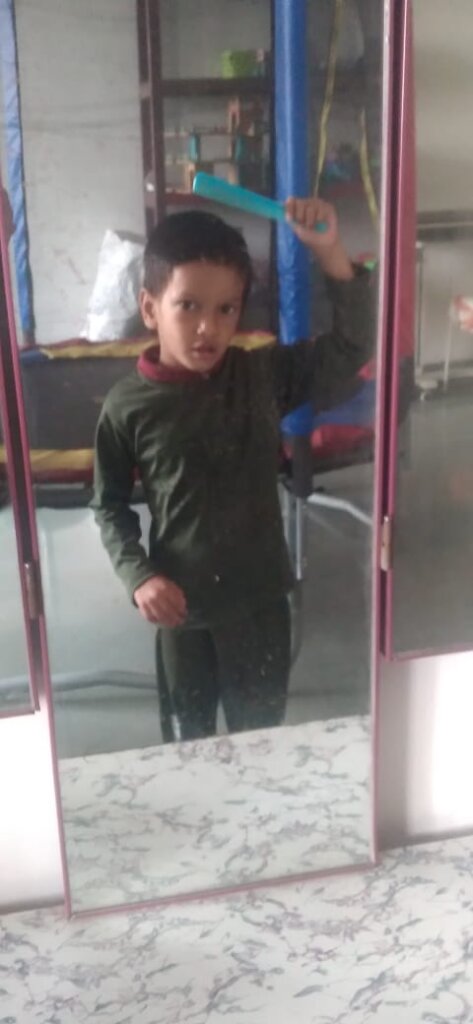By Dr Bhushan Punani | General Secretary
When Shivansh came into the world two months early, his tiny body fit snugly in the palms of his parents’ hands. Born at just seven months, he spent the first three months of his life in a neonatal intensive care unit, a fragile fighter under blinking monitors and gentle care.
But the road ahead was tougher than anyone expected. Soon after, his parents received news that no parent is ever prepared for—Shivansh was blind. Undeterred, they sought out the best doctors they could find, travelling to Chennai in the hope of a miracle. Surgery was attempted, and with it, months of anticipation and silent prayers. But the outcome brought heartbreak: there was no improvement in his vision.
Still, his parents did not give up.
By the time Shivansh was six, his parents enrolled him in an Inclusive Early Childhood Education Program. At first, they believed blindness was his only challenge. But over time, they began to see signs that things weren’t progressing the way they had hoped. His speech was delayed. He struggled to understand basic things. After many counselling sessions and conversations with other parents, Shivansh’s mother began to accept something she had resisted for years—her son was living with multiple disabilities.
The early days at the centre were difficult. Shivansh was entirely dependent on his mother. He wore diapers around the clock, played only with his hands, resisted sitting in a classroom chair, and clung to his mother’s physical presence for comfort. He didn’t use his hands for any purposeful activity and couldn’t manage basic self-care tasks.
But slowly, something began to shift.
Through a carefully tailored intervention program and with the unwavering support of his teachers and parents, Shivansh began to engage. He started responding to verbal instructions. He began using his hands to explore his surroundings. Activities like clipping, beading, arranging pegs, and putting grains in a bottle became his small, triumphant victories.
In self-care, too, there was progress. With a bit of help, he could now wear trousers, eat dry snacks on his own, and was learning to use a tongue cleaner. Perhaps most inspiring of all, Shivansh had learned to walk independently using a mobility cane—a powerful symbol of freedom for someone who once feared the world beyond his mother’s arms.
Today, Shivansh can sit in the classroom without his mother for up to an hour and a half. He plays. He smiles. He learns, slowly but surely. His mother watches him with a quiet pride—no longer weighed down by expectations, but lifted by the joy of each small milestone.
Shivansh’s story is not one of impossibility, but of resilience. It’s a testament to a mother’s strength, a family’s hope, and the transformative power of early support and love.
The Blind People's Association provides services to over 150 children with disabilities and multiple disabilities living in rural and remote areas. These children have been equipped with essential skills for independent living and have been successfully prepared for formal education. Many are now enrolled in mainstream schools, where they learn and grow alongside their peers.
We are deeply grateful for your continued support and trust in our work. Your encouragement inspires us to reach the unreached and deliver quality services to children in need.
Project reports on GlobalGiving are posted directly to globalgiving.org by Project Leaders as they are completed, generally every 3-4 months. To protect the integrity of these documents, GlobalGiving does not alter them; therefore you may find some language or formatting issues.
If you donate to this project or have donated to this project, you can receive an email when this project posts a report. You can also subscribe for reports without donating.
Support this important cause by creating a personalized fundraising page.
Start a Fundraiser

